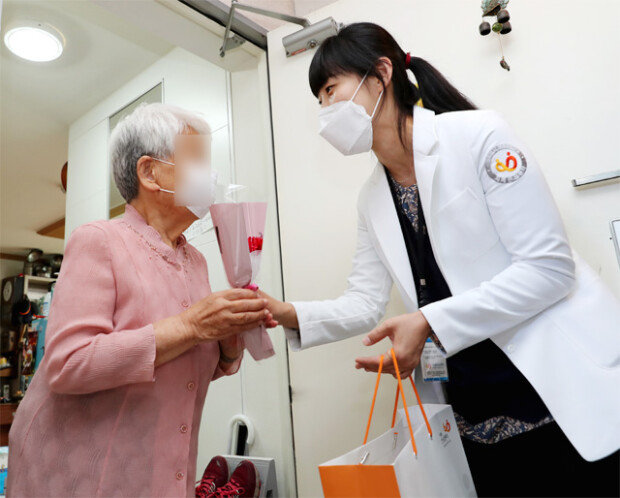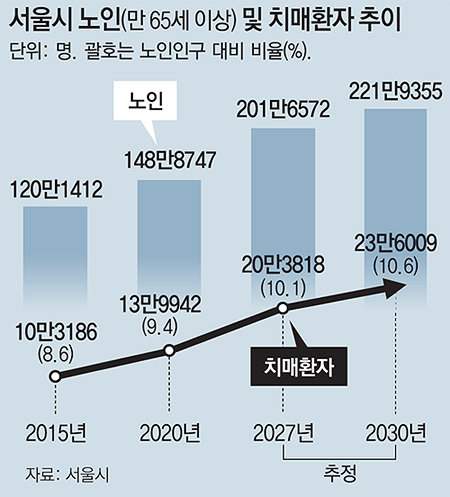Seoul City to inject 39.2 billion won to treat dementia patients
Seoul City to inject 39.2 billion won to treat dementia patients
Posted May. 07, 2020 07:42,
Updated May. 07, 2020 07:42


Seoul City is expected to have over 200,000 dementia patients by 2027. The Seoul Metropolitan Government has injected a total of 39.2 billion won for its dementia management plan to help lessen the burden of a fast-increasing number of dementia patients and their families. The city is set to introduce new programs, such as rehabilitation therapy using smart devices, such as virtual reality (VR) robots and special training courses related to dementia.
According to the city government’s dementia management plan, the city saw an increase of dementia patients from 103,186 in 2015 to 139,942 in January this year. The number of dementia patients is estimated to reach 203,818 in 2027, when the city is expected to become super-aged society with 21.7% of its population, or 2 million, aged 65 and above. The projected figure amounts to 10.1% of the entire elderly population in the country.
The problem is the cost of supporting the elderly as the number of elderly population grows. The cost of aged care, an index indicating the economic burden of family caregiving for elderly population, is on a constant rise from 7.0% in 2000, 9.2% in 2005, 12.0% in 2010, and 16.0% in 2015 to 20.7% this year. The cost of aged care is expected to soar to 27.8% in 2025. The capital city is seeing growing number of elderly living alone and recipients of basic living security program.
Against this backdrop, the Seoul city government is planning to meet the demands of dementia caregiving by introducing special training courses related to dementia and cognitive therapy programs using smart devices, such as VR robots. The city government will also expand the existing programs, such as creating carefree villages for dementia patients and designating doctors for the care of dementia patients.
The city government plans to offer practical training courses for caregivers. The purpose of the programs is to improve the quality of care services by teaching caregivers about the knowledge and information necessary to care for dementia patients. The courses include the management of mental and behavioral symptoms of dementia patients and supporting the activities of dementia patients.
In addition, Seoul City will designate carefree villages and doctors for dementia patients to provide the patients and their families with a place to live. It will increase villages for dementia patients from the current 36 to 50 while boosting the number of doctors for dementia patients to 350 by making agreements with 317 medical institutions.
will@donga.com







